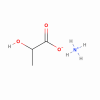Vinegar (Acetum) is a product of a two-step aerobic fermentation process when yeast converts simple sugars like glucose and fructose into ethanol (grain alcohol; the wine step), then in the second step into acetic acid. The first step is widely used in wine, beer, and other alcoholic drinks production because any fruit, root, grain, or seed containing sugars can be used for alcohol production through bio-fermentation. However, the grape and apple are the most commonly used fruits for vinegar production, thanks to their high contents of sugars and availability. The final product contains from 5 to 8% of acetic acid and other trace compounds, depending on the raw source.
History
It is hard to imagine a kitchen with no vinegar, as it is one of the oldest ingredients used in culinary and a remedy from ancient medicine. There are Babylonian ingot records dating from 3000 BC about acetum production. Archeologists found the most aged (5500 years old) wine-making equipment in Armenia with traces of vinegar.
Traditional medicine
The beneficial effects of vinegar have been known for centuries. However, in any traditional medicinal records, there is a large part dedicated to this ancient cure used for the treatment of numerous diseases, including skin conditions like infections, inflammation, edema as well as wound healing.
It was an accessible antiseptic, as starting from 1% concentration, acetic acid exhibits potent antimicrobial action. Acetum also has been used as a preservative for food and ancient medicinal preparation, preventing intestinal infections during a period when it was a death sentence because of the absence of antibiotics.Current uses
Besides culinary, vinegar is a natural and safe ingredient for modern skin and hair care preparations. Thanks to many beneficial properties, it is used as an antiseptic, solubilizer, astringent, antioxidant, cleansing, and acidifying agent. Depending on the type, acetum can provide additional benefits; for example, apple (cider) vinegar contains AHAs exfoliating dead, dull, and pigmented cells from the skin surface.
It speeds up skin cell regeneration and enhances renewal rate improving appearance and complexion. In addition, it eliminates excess sebum, regulates production, and mattifies the skin. Thanks to its antibacterial action, vinegar is a perfect ingredient for anti-acne formulas and a natural preservative that prolongs the shelf-life of a product without adverse effects.
Rich in essential microelements and vitamins, Acetum nourishes the skin and enhances moisture retention, smoothing fine lines and exposing a youthful appearance. In hair care applications, it fights against dandruff, microbes, and excess oil while cleansing and purifying hair.











